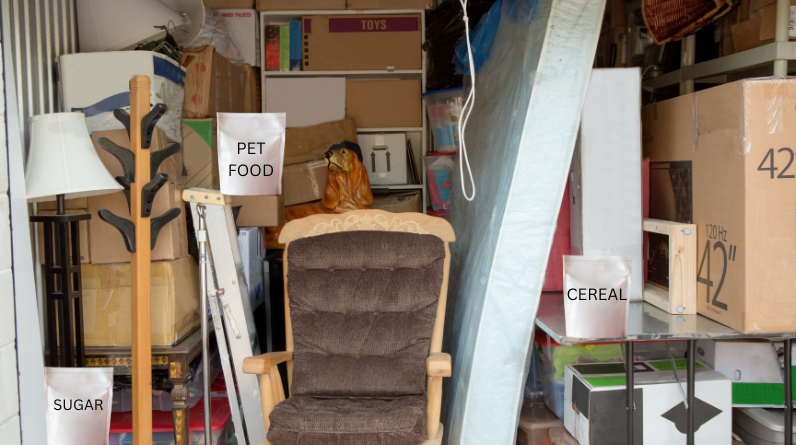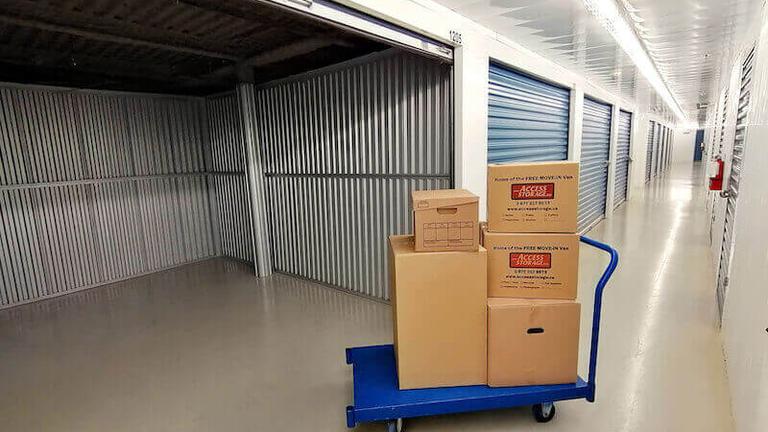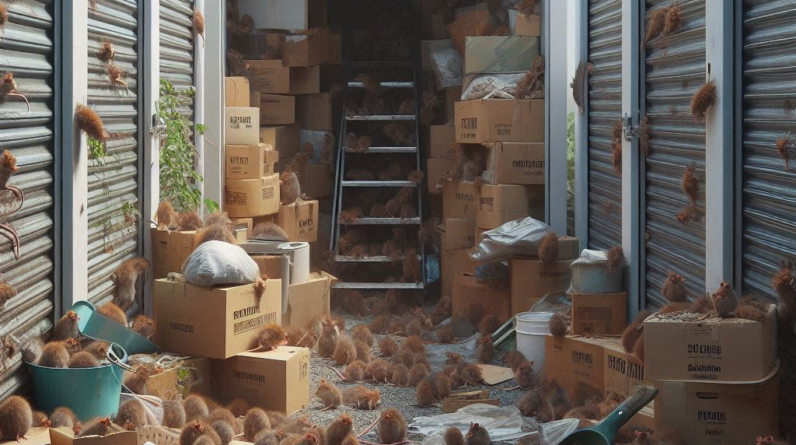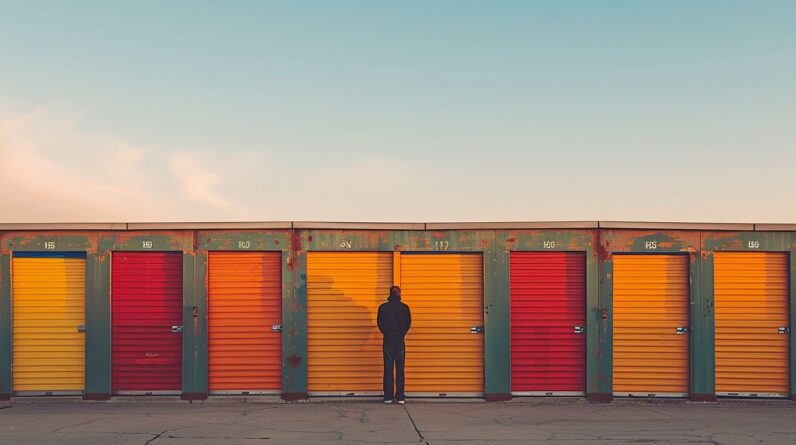
Self-storage units provide a convenient solution for managing excess belongings, but not everything is suitable for storage. Certain items should never be kept in a storage unit due to safety, health, or preservation concerns. Here’s a comprehensive list of items you should avoid storing to ensure your belongings—and your storage unit—remain in top condition.
1. Hazardous Materials
Hazardous materials pose a significant risk in storage units. These substances can be dangerous and are often subject to strict regulations:
- Flammable Liquids: Gasoline, propane, and other flammable liquids can cause fires or explosions if they leak or are exposed to heat sources.
- Chemicals and Cleaning Agents: Household chemicals like bleach, ammonia, and other strong cleaning agents can be harmful if they leak or react with other substances.
Always dispose of hazardous materials according to local regulations and avoid storing them in your unit to prevent accidents and environmental harm.
2. Perishable Foods
Storing perishable foods in a storage unit is problematic due to potential spoilage and odor issues:
- Non-Refrigerated Foods: Items like fruits, vegetables, dairy products, and meats can spoil quickly, leading to unpleasant odors and attracting pests.
- Frozen Foods: Without proper refrigeration, frozen foods will thaw and deteriorate, creating health risks and potentially ruining other stored items.
It’s best to keep perishable foods in your kitchen or refrigerator and avoid using storage units for them to maintain freshness and hygiene.
3. Valuable Documents and Personal Records
Important documents and personal records require special handling and are best kept in a secure and controlled environment:
- Legal Documents: Documents such as wills, birth certificates, and property deeds should be stored in a fireproof safe or a secure place at home.
- Personal Records: Sensitive information like medical records, financial statements, and tax documents should be kept in a secure, climate-controlled environment to prevent damage or theft.
Store valuable documents in a secure, accessible location to ensure their safety and avoid potential loss or damage.
4. Electronics and Appliances
Electronics and appliances can be sensitive to temperature and humidity changes, which can affect their performance and longevity:
- Computers and Televisions: These items are prone to damage from temperature fluctuations, dust, and humidity. Store them in a climate-controlled environment to protect them.
- Large Appliances: Refrigerators, washers, and dryers should be cleaned thoroughly before storage and stored in a dry, well-ventilated area to prevent mold and mildew growth.
Protect electronics and appliances by keeping them in a climate-controlled environment and preparing them properly for storage.
5. Expensive Jewelry and Antiques
High-value items like jewelry and antiques are best kept in secure locations to prevent theft and damage:
- Jewelry: Store jewelry in a safe or lockbox at home to ensure its security and prevent potential loss.
- Antiques: Valuable antiques require special care and are better kept in a climate-controlled environment with proper preservation techniques.
Keep valuable items secure at home or in a safe deposit box to avoid risks associated with storage units.
6. Family Heirlooms and Sentimental Items
Family heirlooms and sentimental items are irreplaceable and require careful handling:
- Photographs and Keepsakes: Store these items in acid-free boxes or albums to protect them from damage. Climate control is essential to preserve their condition.
- Special Mementos: Items like wedding dresses, memorabilia, or gifts should be stored in protective covers and a climate-controlled environment to maintain their quality.
Protect sentimental items by keeping them in a safe, climate-controlled location where they can be preserved properly.
7. Expired Food and Medicine
Expired food and medicine can pose health risks and should be discarded:
- Expired Food: Old or expired food items can attract pests and create unpleasant odors. Always dispose of expired food items responsibly.
- Expired Medicine: Medicine can lose its effectiveness and potentially become harmful after its expiration date. Dispose of expired medication according to local guidelines.
Properly dispose of expired items to avoid health risks and maintain a clean storage unit.
8. Living Plants and Animals
Living plants and animals are not suitable for storage units due to their need for proper care and environment:
- Plants: Plants require light, water, and air circulation. Storing them in a dark, confined space can lead to their demise.
- Pets: Animals need proper care and should never be stored in a storage unit. Always provide them with a safe, comfortable living environment.
Ensure plants and animals are cared for in appropriate environments and avoid using storage units for their housing.
9. Chemicals and Cleaning Products
Chemicals and cleaning products can be hazardous and should not be stored in a unit:
- Paints and Solvents: These substances are flammable and can release toxic fumes, posing risks to both your belongings and the storage facility.
- Heavy-Duty Cleaners: Strong cleaning products can be harmful if spilled or mixed improperly. Store them in a secure, well-ventilated area at home.
Keep chemicals and cleaning products in a safe, appropriate place to avoid potential hazards.
10. Anything with High Personal or Emotional Value
Items with high personal or emotional value should be kept in a safe, secure place:
- Memorabilia: Items like personal journals, letters, or irreplaceable keepsakes should be stored in a secure location at home.
- Special Gifts: Items received as gifts that hold deep personal significance should be kept in a safe, accessible place where they are protected.
Ensure that highly valued items are kept in a safe, secure environment where they can be easily accessed and protected from damage.
By avoiding the storage of these items, you can ensure that your self-storage unit remains safe, clean, and suitable for your belongings. Proper planning and awareness of what should not be stored can help you maintain an organized and efficient storage experience.






